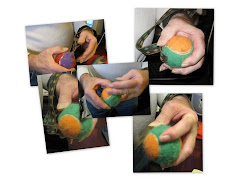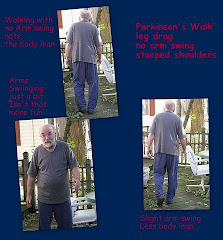Most of us have seen the rating scales for PD before. These are still a very significant part of the Parkinson's diagnosis and the progression tracking throughout the path of this disease. We list the Hohen and Yahr (HY) scale first because it is a way to evaluate motor impairment as well as physical disability. It also can be used to measure response to treatment.
The Unified Parkinson's Disease Rating Scale, known as the UPDRS is used to provide an assessment means for diagnosis and response to treatment. The UPDRS was revised under the sponsorship of The Movement Disorder Society. It is now known as the MDS-UPDRS. We have provided a table of areas for the MDS-UPDRS as well as links to the older and newer versions in html and PDF formats which list the measurements and the scoring. It was recently revised to be more user-friendly to patients, caregivers and diagnosticians. It appears to be getting some good reviews.
The Schwab and England Activities of Daily Living Scale should be read by family, caregivers and patients alike.
For the just curious, these scales should provide some instant recognition of Parkinson's Disease and the daily life of people with PD and their families.
only. May present as tremor in one limb
Friends may notice changes in posture,
walking, facial expression
Stage two: Symptoms on both sides of the body.
Minimal impairment of balance.
Posture and gait affected
Stage three: Balance impairment. Mild to moderate disease.
Physically independent.
Generalized and moderately severe dysfunction
Stage four: Severe disability, but may still be able to walk or stand
Stiffness and bradykinesia, although tremor may lessen
No longer able to live independently .
Stage five: Wheelchair-bound or bedridden unless assisted
Loss of weight and muscle mass
Requires constant nursing care
Chairperson: Christopher G Goetz
Old version pdf format
In Part V it will be time to talk about the diagnosis and treatments for Parkinson's Disease and depression














Im a 43 year old male and my right hand has always shook since I was 25 every time I go to drink something. Among being over sensative to heat (symtoms to over heating sweating and clamy skin). I have in the past been hit by a car walking and since then my left toe locks up (a numb sharp pain, which does not allow me to walk). More reasently I've had neck pains in my left side and hear the bones in my neck pop almost everytime I turn my head. I'm currious if I may have some pre-cursers to parkinson's
ReplyDeleteWhat does you doctor have to say about your spine and possible injuries as a result of your accident?
DeleteThe tremor in PD is a resting tremor. If you have a tremor when you drink something, that sounds like an action tremor to me.
Have you seen an orthopedist, neurologist or an endocrinologist?
for remedy to the nerves i kindly ask if you can visit a chiropractic maser to work on your spine and also take food supplement which will internally correct some chemistry of the bodies function-ability back to some degrees of normal gait in your daily activities
ReplyDeleteMassage therapy is indeed a treatment for relief of Parkinson's disease symptoms but the work is never directly on the spine. Medical massage can relieve pain, relieve muscle stiffness, increase range of motion and flexibility, increase the flow of endorphins and in general help on to feel better. Treatments need to be scheduled regularly.
DeleteSupplements might help relieve symptoms but must be carefully planned.
Gait work is helped by specific exercise and some very expensive therapies and aids. We have written several posts about both.